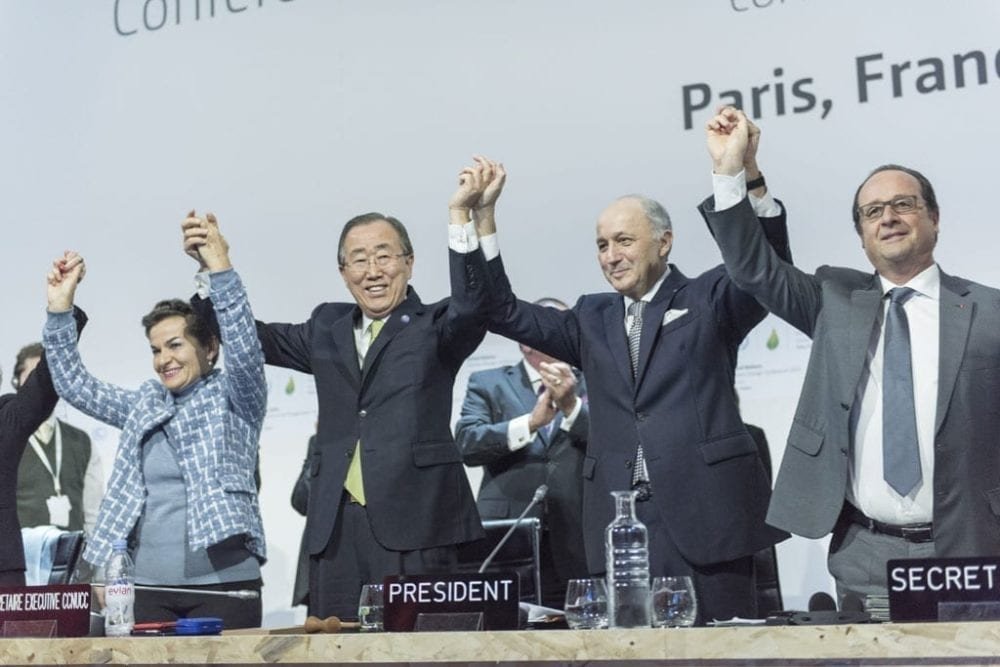Human rights
The Paris Agreement acknowledges that countries should respect and promote human rights in addressing climate change.
Indigenous People’s rights are in the pre-amble and in the Adaptation section of the Agreement, but they’re not awarded the protection they deserve – particularly given that forest protection will be key to achieving 1.5ºC.
Renewables
The conference saw good initiatives around renewables during the negotiations – including India’s Solar Initiative, the launch of the Africa Renewable Energy Initiative and mayors and leaders of more than 1000 cities giving their support to a 100% renewable energy future. However, they were presented outside the official talks.
In the text itself, renewables are recognised in the context of promoting universal access to sustainable energy in developing countries, in particular in Africa, through the enhanced deployment of renewable energy.
‘The deal sets out the objective of limiting temperature rises to 1.5 degrees, but the emissions targets on the table take us closer to 3 degrees. That’s a critical problem, but it’s one with a solution. Renewable energy is already doing heavy-lifting across the globe, but now its moment must come. It’s the only technology mentioned in the Paris Agreement.
‘There’s a yawning gap in this deal, but it can be bridged by clean technology. We’re in a race between the roll-out of renewables and rising temperatures, and the Paris Agreement could give renewables a vital boost. The wheel of climate action turns slowly, but in Paris it has turned.’
Kumi Naidoo, Greenpeace International’s executive director
Unleashing human ingenuity
A review mechanism has been established whereby every five years, beginning in 2018, Parties will regularly review what is needed in line with science.
Highlighting the role of the private sector, the UN chief said business leaders came to Paris in unprecedented numbers, and that ‘powerful’ climate solutions are already available – with many more yet to come.
‘With these elements in place, markets now have the clear signal they need to unleash the full force of human ingenuity and scale up investments that will generate low-emissions, resilient growth. What was once unthinkable has now become unstoppable.’
Ban Ki-moon, United Nations Secretary-General
An ‘ambitious agreement’
For the UN, the Paris Agreement and the outcomes of COP21 ‘cover all the crucial areas identified as essential for a landmark conclusion’. The Secretary-General concluded that negotiators reached ‘solid results on all key points’, with an agreement that demonstrates solidarity and ‘is ambitious, flexible, credible and durable.’
‘You’ve done it, reached an ambitious agreement, a binding agreement, a universal agreement. Never will I be able to express more gratitude to a conference. You can be proud to stand before your children and grandchildren.’
Francois Hollande, President of France
Click here to find out more about the Paris Agreement.
 Play Video about This Rock Might Just Save The World
Play Video about This Rock Might Just Save The World Play Video about Play 2 hours of rock
Play Video about Play 2 hours of rock Play Video about Play 2 hours of brook
Play Video about Play 2 hours of brook Play Video about Play 2 hours of sheep
Play Video about Play 2 hours of sheep











































